SleepDrive
Are you getting enough sleep?
SleepDrive is all about increasing awareness of how much sleep you need, what is quality sleep, how to analyse your sleep levels and how best to overcome sleep issues. How many people have ever stopped and thought how much sleep do they actually need? What type of sleep is it and is it enough?
This Drive helps you take a closer look at your own sleep needs. Again throughout YouDrive we try to help you stop and get to know more about your body, how it works, how to get the best out of you and how to maintain yourself. We don’t want you to guess but to analyse what good looks like so you can compare.
Sleep deprivation in the UK is a major issue and affects a significant number of people. Lack of sleep can affect your mental health and stop you carrying out your normal daily life functions. The NHS carried out a survey and some of the headlines are shown below..
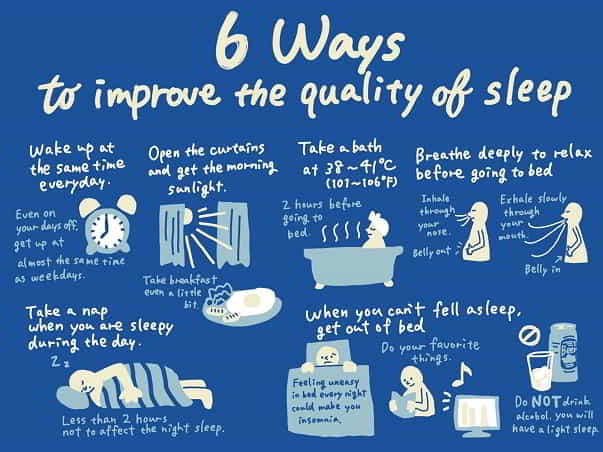
Here are some initial thoughts about sleep. GO!
Here are some facts and stats about sleep. GO!
Here are some tips from the Sleep Council to help you improve your sleep. GO!
See how much you sleep you need – depending on age. GO!
See what you can do to make yourself sleep better. GO!
See what external factors can affect your sleep. GO!
See whether power napping is good for you or not. GO!
See what the stages of sleep are and which is good for you. GO!
See how much deep sleep you need. GO!
If you’re a visitor to our site you can join and download information, assess your own health and create your own action plans, and even contribute to our site. GO!
See what next steps you can take. GO!
We have some additional information and stuff on this subject. GO!
Some Initial Thoughts About Sleep

You can do the NHS sleep self-assessment
Before jumping into the detail why not take the sleep assessment test and see how you compare - you might realise it's not as bad as you think.
It's only 8 multiple choice questions and won't take you long to complete.
Click the picture to go to the test.
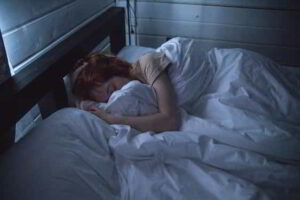
The NHS Report by Sleepio
The facts below are from a report which was carried out by an organisation called Sleepio, and recommendations include the following:
• The importance of good sleep should be highlighted in public health campaigns.
• GPs should be trained on the benefits of sleep.
• Public health strategy should include a specific objective to reduce sleep problems.
• New national guidance is needed on managing insomnia using non-drug treatments.
• People with sleep problems should have access to psychological therapies, in particular cognitive behavioural therapy.
Facts About Sleep
as many people with insomnia reported relationship difficulties
were classified as possibly having ‘chronic insomnia’.
who said they were in poor health had poorer sleep
who said they were in good health had good sleep
30 per cent of people in the UK are severely slepp deprived
75% of people with insomnia reported poor concentration
79% of people with insomnia reported having it for two years
38% of people were classified as ‘good sleepers’.
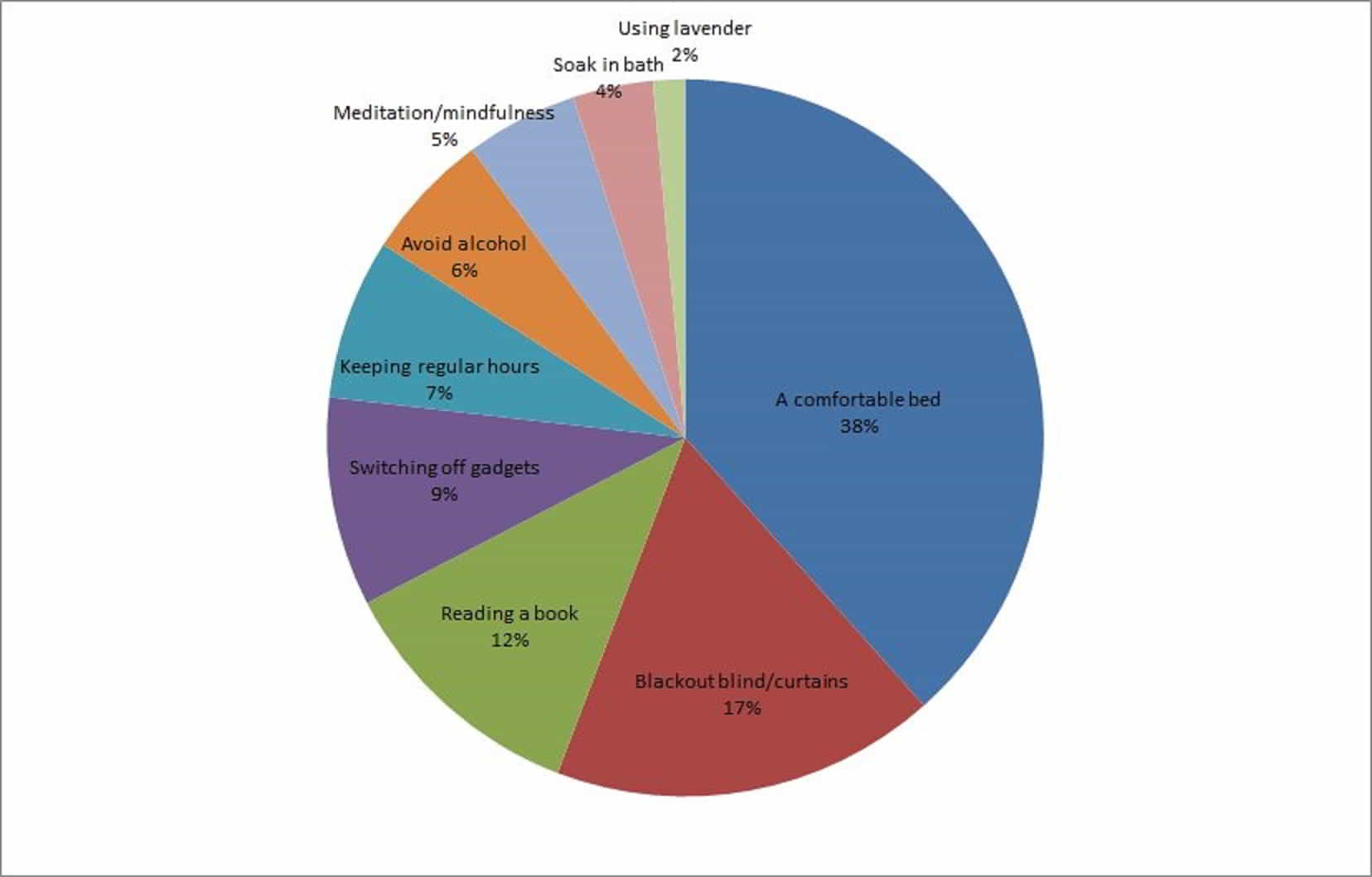
Sleep Council Tips
Create a restful sleeping environment Your bedroom should be kept for rest and sleep and it should be neither too hot, nor too cold; and as quiet and dark as possible.
Make sure your bed is comfortable. It’s difficult to get deep, restful sleep on one that’s too soft, too hard, too small or too old. If you’re not sure if you need a new bed, the NBF website has lots of advice
Take more exercise. Regular, moderate exercise such as swimming or walking can help relieve the day’s stresses and strains. But not too close too bedtime or it may keep you awake!
Cut down on stimulants such as caffeine in tea or coffee – especially in the evening. They interfere with falling asleep and prevent deep sleep. Have a hot milky drink or herbal tea instead.
Don’t over-indulge. Too much food or alcohol, especially late at night, just before bedtime, can play havoc with sleep patterns. Alcohol may help you fall asleep initially, but will interrupt your sleep later on in the night.
Don’t smoke. Yes, it’s bad for sleep, too: smokers take longer to fall asleep, wake more often and often experience more sleep disruption.
Try to relax before going to bed. Have a warm bath, listen to some quiet music, do some yoga – all help to relax both the mind and body. Your doctor may be able to recommend a helpful relaxation tape, too.
Deal with worries or a heavy workload by making lists of things to be tackled the next day.
If you can’t sleep, don’t lie there worrying about it. Get up and do something.
These are the tips from the Sleep Council in more detail. Click on a heading to see what they say or play the video.
If you’re having trouble sleeping, one of the first things to consider is your bedroom. In order to get a restful night’s sleep you need the right setting, which means a clean, peaceful and welcoming room. Many of us are unknowingly sleeping in a bedroom that’s simply not fit for purpose, and that environment could be the key cause of a restless night.
Fortunately, it’s relatively easy to transform your bedroom into a space that encourages a peaceful night’s sleep. Here are our top tips:
When it’s time for bed, make your room completely dark. This can be achieved with a blackout blind or curtains, an additional window dressing, or even an eye mask.
Maintain an ambient temperature in your room. If you’re too hot or too cold, you won’t sleep soundly. We recommend a cool temperature of around 16-18° C (60-65° F).
A tidy room makes for a tidy mind… and a restful night’s sleep! De-clutter your bedroom and create a space that’s clean, neat and simple. Even just relocating the laundry basket, stacking up some books or blitzing your bedside table can make a real difference.
Say no to technology in the bedroom! That means avoiding televisions and computers. Having access to these will urge you to switch on when you can’t drift off, which in turn can lead to even more disturbed sleep.
LED displays are particularly troublesome when it comes to getting a good night’s sleep. When it’s time to snooze, switch off your mobile phone, tablet, and any alarm clocks with a digital display.
Avoid treating your bedroom like an extension of the rest of your house. That means you shouldn’t use it for work, watching TV, eating, and even talking on the phone. Save the bedroom for sleep and sex.
Add special touches to the space, which will help you feel more connected and peaceful. Family photographs, plants, flowers and ornaments will help to create a room that’s pleasant and relaxing.
Avoid using certain colours when decorating. Remember that bright reds, yellows and oranges are jarring, while browns and whites are boring and drab. Instead, choose soft, muted tones that will make you feel calm.
Certain smells can affect your mood, helping you to feel more calm and relaxed. Lavender and germanium are naturally calming, so invest in some essential oils to help you drift off. Remember, these should not be used in pregnancy or children’s rooms.
Take the time to really consider your bedroom. Realise that you have a duty of care to yourself, and should therefore create a sleep area that’s as effective as possible. Boost your wellbeing by making your bedroom more sleep-friendly – you’re worth it! For more information, on how to create the perfect sleep environment, click here!
The foundation of a great night’s sleep is a comfortable bed. The right mattress can make a huge difference between a restful and restless night, saving you from fatigue and irritability for the rest of the day. An unsupportive mattress will encourage a poor sleeping posture, which prevents you from good sleep. If you regularly wake up with aches and pains, it’s probably time to change your mattress.
There’s a huge amount of choice on the bed market, which can make selecting the right one difficult. It’s always worth doing your research! Here are some of the factors you should consider when selecting the best bed for you:
Always put quality above price. Of course, there are some perfectly acceptable low-priced mattresses available, but when it comes to your bed, spend as much as you can afford.
The right support is crucial. If your bed is too hard or soft, it will be uncomfortable and unsupportive. Your mattress should be firm enough to support your spine in the correct alignment while conforming to your body’s contours.
Always try before you buy! Lay down on each bed that you’re seriously considering, spending a good 10-15 minutes realising its comfort and support levels. Try several different positions (we all move 40-60 times per night), and remember that if two people will be sleeping on this mattress, test it out together.
Avoid waiting until your bed has ‘worn out’ completely. Research shows that sleeping on an uncomfortable mattress can rob you of up to one hour’s sleep per night, which adds up to a full night’s sleep over the course of a week! You should consider changing your bed after seven years.
The 21st century lifestyle is typically fast paced, chaotic and jam-packed with technology. From the moment we wake up we switch on our brains with smart phones, and as our day progresses, we’re presented with even more triggers. The continuous content that’s fed from TV and radio, real time social feeds and our constant checking of emails all make for a non-stop stimulation… It’s no wonder that many of us can’t switch off or fall asleep, then struggle to wake up in the morning and spend a lot of time complaining “I can’t sleep!”
There are simple ways to adjust your lifestyle to promote a better night’s sleep. These minor changes will help you to wind down and relax, removing you from the hectic, technology-crammed world that we live in.
Reduce the intensity of artificial light in your home by using dimmer switches or low wattage bulbs.
Maintain a regular bedtime routine and sleep pattern.
Use a hot water bottle if you get cold.
Avoid drinking alcohol or caffeine before bed.
Switch off your tech a couple of hours before bedtime – that includes your phone!
Empty your bladder before bed, and try not to consume too many liquids before you sleep.
Don’t nap during the day.
Scientists have found a direct correlation between anxiety and rhythm of sleep. When a person is anxious, their heart rate increases, which causes the brain to ‘race’, too. An alert mind produces beta waves, making you far too stimulated to sleep. To make matters worse, an active brain triggers other worries, so it’s even harder to achieve sleep.
Once this pattern sets in, bedtime can become a thing of anxiety. So how can you combat the stress of sleeping?
There are several techniques to banish anxiety and calm your heart rate. Cognitive behavioural therapy is one of them, helping people to ‘unlearn’ thought processes through psychological treatment.
You can also manage your heart rate by placing your hand on your heart and listen for the beating. Breathe in deeply for four seconds, and then breathe out slowly. Repeat this until you can feel your heart rate slowing, which in turn slows down your busy brain activity.
Eliminate your anxious thoughts by practising the speaking technique. This means voicing the thoughts that would otherwise live in your head. Speaking aloud overrides thinking, which stops your negative thoughts in their tracks. Practise by thinking the alphabet in your head, and when you reach ‘J’, start speaking out loud. What happened to the alphabet? Well, you stopped thinking it in your head, because speaking overrode those thoughts. Use this technique when you start worrying in bed: instead of thinking ‘the mortgage is due and I don’t have the money to pay it’, say aloud ‘we will find a way to pay the mortgage this month.’
They say you are what you eat, and when it comes to getting a restful night’s sleep, the food and drink you consume has a drastic effect. The best foods for sleep include milk, cherries, chicken and rice, while fatty meat, curry and alcohol are some of the worst. Some people choose not to eat after 6pm, as late meals can make it difficult to sleep. However, if you are eating before bed, remember that there three main chemicals that promote good sleep: tryptophan, serotonin and melatonin. Here’s how you can include them in your diet.
Tryptophan
All proteins involve amino acids, and tryptophan is one of them. It is, however, the rarest amino acid, but it can still be found in turkey and chicken, as well as pumpkin seeds, sunflower seeds, peanuts and beans. Milk also involves a small amount of tryptophan. When this chemical reaches the brain, it converts into serotonin.
Serotonin
You may be most familiar with this sleep-promoting chemical, which is connected to drugs like Prozac. Serotonin carries messages between neurones and other cells, and when levels are decreased, individuals can feel anxious, depressed and crave carbohydrates. At night time, serotonin undergoes metabolic changes to become melatonin, the chemical that induces sleep.
Melatonin
Melatonin is a hormone that helps to regulate the body’s circadian rhythm, promoting a restful sleep. The best way to ensure optimal melatonin production is to sleep in a dark environment. Even low amounts of light can suppress the production of melatonin, which not only affects sleep, but has other health consequences too.
We can offer plenty of dietary advice to help you sleep better:
• Always combine a protein food with a low to medium glycaemic index carbohydrate, which optimises tryptophan levels.
• Avoid stimulants like caffeine and cigarettes.
• Avoid sedatives, such as sleeping pills and alcohol, to help you sleep. They have short term benefits and long term counter effects, such as dependency.
• Don’t buy melatonin supplements online. They are only available on prescription in the UK. Taking prescribed melatonin will disrupt your own natural melatonin production, potentially suppressing your ability to generate this important hormone.
• Don’t stop taking sleep medication suddenly. The best course of action is to speak to a doctor and develop a strategy to slowly wean yourself off in a healthy manner.
• Changing your diet can help you sleep, but it takes time. Start a sleep diary to keep track of your progress, and don’t give up if you see no sudden improvement – sleeping soundly takes practice!
Sports and exercise can help you to enjoy a better quality of sleep. Working out effectively can tire your body out gently, promoting a better night’s sleep. Releasing pent up tension through exercise is also highly beneficial, helping to banish stress before bedtime. Exercising also lowers your body’s temperature, which induces better sleep. However, there are several things to keep in mind when exercising to improve your sleeping habits.
• Don’t overdo it. Contrary to popular belief, wearing yourself out physically is not likely to induce sleepiness. In fact, it can often be counter productive, leading to additional alertness when trying to sleep.
• It’s believed that exercising close to bedtime can disturb sleep, however there is no evidence to back this argument. As such, exercising in the evening is much better than not exercising at all!
• When it comes to exercise, the most important thing is to feel fitter and healthier. If you are experiencing sleeping problems, try to exercise a little more or change the type of activities you do. Yoga is renowned for its relaxation and sleep benefits, while moderate-aerobic exercise like walking has been found to help people fall asleep more quickly.
Many of us lead stressful lives. Demanding jobs, long hours and active families all contribute to a hectic lifestyle, and that’s not helped by the intense media that surrounds us. These elements make it very difficult to wind down, but fortunately there are a few relaxation techniques that can help promote a deep, restful sleep.
Relax Your Body
This method is best done in bed, though it can also be practiced throughout the day if you’re in the right environment. By relaxing separate groups of muscles, you become more aware of your body and able to wind down mindfully.
1. Tense a muscle, for example your bicep, by contracting for 7-10 seconds. Flex it gently – do not strain.
2. At the same time, visualise the muscle being tensed, consciously feeling the build up of tension.
3. Release the muscle abruptly and then relax, allowing the body to go limp. Take a few moments before moving on to the next muscle.
4. Remember to keep the rest of your body relaxed whilst working on a particular muscle.
Cognitive Behavioural Therapy (CBT)
CBT is commonly prescribed for depression, but clinical trials have shown it is the most effective long-term solution for insomniacs. CBT helps you identify the negative attitudes and beliefs that hinder your sleep, then replaces them with positive thoughts, effectively ‘unlearning’ the negative beliefs.
A typical exercise is to set aside 30 minutes per day, in which you do your day’s worth of worrying. During this worry period you keep a diary of your worries and anxious thoughts, writing them down in order to reduce the weight in your mind. Once this task is complete, you are banned from worrying at any other point in the day.
Before you go to sleep, you can also write down the worries that you think may keep you awake. Once you are in bed with your eyes closed, you should imagine those thoughts floating away, leaving your mind free, peaceful, and ready to sleep.
Stimulus Control – The 20 Minute Rule
We should all go to bed when we’re tired, but if you’re not asleep after twenty minutes, it’s recommended that you get up and find another activity to do. This should be quiet and peaceful, and not involve your phone or other digital displays. Listening to music, reading or doing yoga are all recommended as great 20 Minute Rule activities.
When you feel sleepy again, you should return to bed. The idea of this method is to build a strong association between bed and sleeping, and eventually you’ll be able to fall asleep quickly.
Sleep Restriction
This technique involves only spending the amount of time in bed that equates to the average number of hours that you sleep. For example, you might only get five hours of sleep per night, even though you spend seven hours in bed. By using the Sleep Restriction method, you limit yourself to only five hours in bed per night.
This technique might make you more tired at first, but it can help you fall asleep faster and wake up fewer times. However, it’s not suitable if you’re only getting a couple of hours sleep per night, and should be supervised by a qualified CBT Sleep Practitioner.
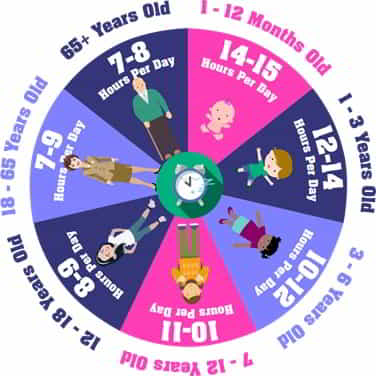
How much sleep do I need?
Firstly, everyone is different and can manage comfortably on what others would see as impossible. Also sleep patterns can change according to a number of factors. Typically, the average person should get between 6 to 7 hours sleep a night but that depends on the depth and quality of sleep.
Some people can get into bed and fall asleep like a light and some take 30 to 40 minutes to go to sleep. Some wake up automatically and get out of bed straight away whilst other lounge back in bed and nap for another 30 minutes.
Each person needs to understand themselves and what is normal and not normal in other words. If you are having a normal but busy week at work or life and you eat with the same regular pattern the you should sleep normally. If on the other hand you are stressed or concerned about something or you have eaten or drank things outside your normal pattern including timing it could disturb your sleep for a couple of days.
If you lose 3 hours sleep for two nights don’t worry, see if you catch up the hours within the next week before getting worried.
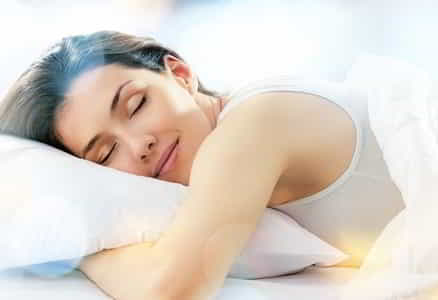
What can I do to help myself sleep better
The key to successful sleep patterns is to firstly understand about yourself and what normal looks like taking into consideration the following things:
• How much sleep do you typically have?
• How deep do you sleep, for how long, was it dreamy or heavy
• Has anything changed in that pattern timings, conditions, new bedding, mattress, room, curtains anything?
• Have you had a blood test to see if you are deficient in anyway?
• Food intake, type of food and when you eat, volume of food and include snacks.
• Drinking, type of drink, when take, quantity
• Work patterns, longer short, stressful or less, new projects, new colleagues, bosses
• Homelife changes, partners, family, arguments, illness, incidents etc
• Travel normals , more or less , incidents etc
• Substances normals or new fresheners etc
• Time of the month periods hormone norms
• Illness and infections
The list goes on. Some people also, and its worth taking it into consideration the time of the year and the moons cycles. Now before you all jump to conclusions; we are all animals at the end of the day and sadly when we learned the power of speech, we lost the power of the sixth senses whereas other animals haven’t. Sometimes we don’t realise that all around us is pressure. We are bombarded by solar flares, moon shifts, earths magnetic forces. Dust storms and particles in the atmosphere, all of which we don’t see but they can impact sensitive people.
Analyse your own patterns first and then look for the changes. Either way allow yourself a few weeks of changes in sleep before seeking a wider view.
What ever you do don’t go to the doctors to get something to help you sleep. They will prescribe sleeping tablets which can affect other parts of your body and can be very addictive. Only as a last resort take anything.
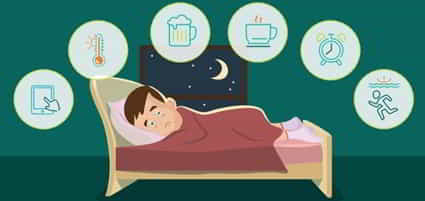
What about external factors that may affect my sleep
Well apart from the ones identified above and ones you can control and manage there are other things that can affect your sleep that you cannot control or see. Click the heading below for more details.
Light affects our biological clock
Our own chemicals can cause us to alter sleep patterns.
Caffeinated products decrease a person’s quality of sleep.
Noise pollution can disturb deep sleep.
Circadian Rhythm Disorders
Screen- based media - too much use
Moonlight can affect sensitive sleepers
The planet - it's Geomagnetic field etc
Light exposure can cause our biological clock to advance or delay, which affects our sleep and wake cycle.
Light is one of the most important external factors that can affect sleep. It does so both directly, by making it difficult for people to fall asleep, and indirectly, by influencing the timing of our internal clock and thereby affecting our preferred time to sleep.
Light influences our internal clock through specialized “light sensitive” cells in the retina of our eyes. These cells, which occupy the same space as the rods and cones that make vision possible, tell the brain whether it is daytime or night time, and our sleep patterns are set accordingly.
The pressure to sleep builds with every hour that you are awake. During daylight hours, your internal clock generally counteracts this sleep drive by producing an alerting signal that keeps you awake. The longer you are awake, the stronger the sleep drive becomes. Eventually the alerting signal decreases and the drive to sleep wins out. When it does, you fall asleep.
A chemical called adenosine, which builds up in the brain during wakefulness, may be at least partly responsible for sleep drive. As adenosine levels increase, scientists think that the chemical begins to inhibit the brain cells that promote alertness. This gives rise to the sleepiness we experience when we have been awake for many hours. Interestingly, caffeine, the world’s most widely used stimulant, works by temporarily blocking the adenosine receptors in these specific parts of the brain. Because these nerve cells cannot sense adenosine in the presence of caffeine, they maintain their activity and we stay alert.
If sleep does occur following the intake of caffeine, the stimulant’s effects may persist for some time and can influence the patterns of sleep. For instance, caffeine generally decreases the quantity of slow-wave sleep and REM sleep and tends to increase the number of awakenings. The duration of its effect depends on the amount of caffeine ingested, the amount of time before sleep that the person ingests the caffeine, the individual’s tolerance level, the degree of ongoing sleep debt, and the phase of the individual’s internal clock.
A study found 20% greater odds of difficulty falling asleep. Loud noises from trucks, trains, planes, sirens and highways, sounds related to a high density of people also disrupts sleep and may lead to insomnia symptoms
The physical environment may bring about circadian rhythm disorders through several mechanisms. Excess artificial light from streets, residences and businesses in the urban setting, may disrupt circadian rhythms by depressing melatonin secretion which impacts the initiation of sleep. Artificial light can cause circadian phase delay and prolong sleep. A study of people exposed to greater outdoor night time lights exposure had a 28% greater odds of a circadian phase delay. Those living in brighter areas at night, typically in dense cities, had a later bedtime.
with the associated artificial light in the bedroom is associated can impact, delayed sleep and wake time
Moonlight is a reflection of sunlight, which affects levels of melatonin, a hormone that signals night time and sleep time.
Two things connected to sleep are melatonin suppression and circadian rhythms. There is gathering evidence that there is some connection to the earth activity and our behaviour. It’s early days but worth doing your own extra research.
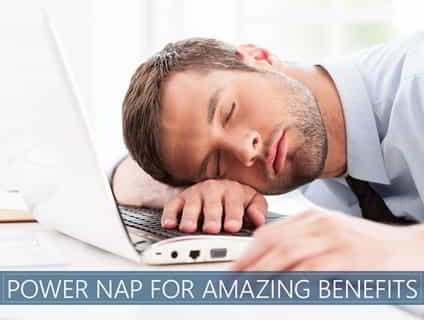
Is power napping good or bad?
While small children typically take naps in the afternoon, adult naps generally tend to be less frequent; however, even in those who get enough sleep (but particularly in those who don’t), many people experience a natural increase in drowsiness in the afternoon, about 8 hours after waking. And research shows that you can make yourself more alert, reduce stress, and improve cognitive functioning with a nap.1 Mid-day sleep, or a ‘power nap’, means more patience, less stress, better reaction time, increased learning, more efficiency, and better health.
Studies show that 20 minutes of sleep in the afternoon provides more rest than 20 minutes more sleep in the morning (though the last two hours of morning sleep have special benefits of their own). The body seems to be designed for this, as most people’s bodies naturally become more tired in the afternoon, about 8 hours after we wake up.
If you only have 5 minutes to spare, just close your eyes; even a brief rest has the benefit of reducing stress and helping you relax a little, which can give you more energy to complete the tasks of your day. But don't confuse a brief rest with microsleep.
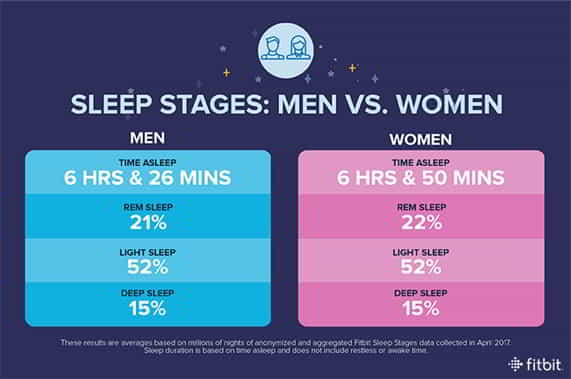
What is quality sleep
There are 5 stages of sleep
There are five stages of sleep during the sleep cycle. Scientists categorized the stages of sleep based on the characteristics of the brain and body during sleep. Stage 1,2,3, and 4, are categorized as ‘non-REM sleep’, and the fifth stage, is REM sleep.
Sleep stages 1, 2, and REM consist of light sleep, while 3 and 4 comprise deep sleep.
Click on any of the tabs on the right to see more information
During stage 1, you drift from being awake to being asleep. This is a light, NREM sleep that doesn’t last very long. You may start to relax and dream, but may also twitch as you transition into stage 2.
Stage 2 of the sleep cycle is still a light sleep, but you are drifting into a steadier sleep. Your breathing and heartbeat slow down, and your muscles relax. Your body temperature decreases, and your brain waves are less active.
In stage 3, you enter deep sleep, and stage 4 is the deepest sleep stage. During deep sleep, your breathing, heartbeat, body temperature, and brain waves reach their lowest levels. Your muscles are extremely relaxed, and you are most difficult to rouse.
Stage 4 is known as the healing stage, when tissue growth and repair take place, important hormones are released to do their jobs, and cellular energy is restored.
Your first REM cycle of the night begins about 90 minutes after you fall asleep and recurs every 90 minutes. Your eyes move around quickly behind your eyelids and your brainwaves look similar to those of someone who is awake. Your breathing, heart rate, and blood pressure rise to near-waking levels.
REM sleep, often referred to as stage 5, is when you are most likely to dream. Your arms and legs become temporarily paralyzed during this stage to prevent you from physically acting out your dreams.
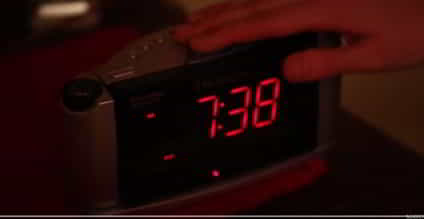
How much deep sleep should you get?
In healthy adults, about 13 to 23 percent Trusted Source of your sleep is deep sleep. So, if you sleep for 8 hours a night, that’s roughly 62 to 110 minutes.
However, as you get older you require less deep sleep - see below.
Click on any of the tabs on the right to see more information
During deep sleep, a variety of functions take place in the mind and body:
- memories are consolidated
- learning and emotions process
- physical recovery occurs
- blood sugar levels and metabolism balance out
- the immune system is energized
- the brain detoxifies
- without deep sleep, these functions cannot take place and the symptoms of sleep deprivation kick in.
On the other hand, there doesn’t seem to be any such thing as too much deep sleep.
Although there’s no official consensus on how much REM sleep you should get, dreaming is most common during this stage. Experts Trusted Source believe that dreaming helps you process emotions and solidify certain memories.
For most adults, REM takes up about 20 to 25 percent of sleep, and this seems to be healthy during average sleep cycles. However, sleep research is raising some interesting questions. One recent study suggested that higher amounts of REM sleep may be associated with depression. But don’t go making sudden changes in your sleep habits — it is not clear which is the cause and which is the effect.
Although sleep scientists believe that light sleep is good for you, there is no minimum to strive for. Light sleep is usually the default stage, one that is nearly impossible to avoid if you are asleep at all.
Too much overall sleep on a regular basis, however, is linked to obesity, depression, pain, heart disease, and even increased risk of death.
According to the Sleep Apnea Association, you should feel fresh and alert when you wake up, but many people don’t.
If you’re sleeping for 7 to 8 hours each night, but only 10 percent of that is deep sleep, you’re not getting the 90 minutes you need and might still be tired each day.
For visitors
Why don't you join us?
You can register to join us as a member, when you’ll be able to download our stuff and comment, or as a YouDriver when you’ll also be able to check your health and set up your own action plans to make some improvements. If you’ve already registered, sign in below. Or let us know what you think.
Mayo Clinic tips for better sleep
If you’re struggling to get at least seven hours of shut-eye every night, it might be because of what’s called your sleep hygiene. That’s the term doctors use for a series of habits that influence sleep.
In this Mayo Clinic Minute, Jeff Olsen talks with Dr. Eric Olson, a Mayo Clinic sleep specialist, about some simple ways you can improve your sleep hygiene.


Next Steps
It doesn’t matter what stage you’re at – it’s important to be the best you can be. At the end of the day it’s about taking personal responsibility – You Drive!
It’s really your choice. You can find out more information about the subject, or see other institutions that can help by going to Support. There you will find organisations, training, coaching, self-help courses and other items to support your personal change. We have also started developing a panel of experts to provide info, advice, help and support.
Get Support
There are times when you need some help to meet your aims – a helping hand. That might be an organisation that can provide you with some help, some specialised information, a particular book or tool to help, or just getting some background reading material.
We have a lot of items which appear on our Drives and other pages, which you can go to by clicking on the picture or link. Some contain affiliate links and we may receive a tiny commission for purchases made through these links.
If you know of anything which could help you or our other visitors then please click the button on the right, which will take you to a Contacts page where you contact us.
Experts
We are compiling a list of experts who can provide advice, help or specialised services. You will be able to access these experts from anywhere on our site you see our ‘Experts’ symbol. Click the green E to see what our Experts list will look like, with a couple of imaginary ‘experts’ added!
More Information
Scroll down to see more information on this Drive.
If you register you can also download reports, white papers, quizzes and other collaterals. We will never ask you for any financial information, and we’ll only send you the information you want. You can register for our site either above or in the footer below. You can provide your own questions and experiences in order to help other members. We only moderate for spam and inflammatory language – see our moderation policy.
If you’ve found this interesting, then please share it on social media. Choose your network!
More information
Why We Sleep:
The New Science of Sleep and Dreams
‘Matthew Walker is probably one of the most influential people on the planet’ Evening Standard
THE #1 SUNDAY TIMES BESTSELLER
Teach Yourself to Sleep
An ex-insomniac’s guide
Are you suffering from chronic insomnia, an erratic sleep pattern or do you simply feel that your sleep isn’t as deep and restorative as it should be? Then struggle no more. Teach Yourself to Sleep is the new, sustainable solution that you have been waiting for.
Sleep Rituals
100 Practices for a Deep and Peaceful Sleep
Do you have trouble getting—and staying—asleep? Sleep rituals can set the mood for restful slumber and help you drift off in peace—let these recommended bedtime routines be your key to a good night’s sleep!
The Circadian Code
Lose weight, supercharge your energy and sleep well every night
Circadian rhythms are biological processes or clocks that exist in each one of our cells. Programmed to turn genes on or off at different times of the day or night, they influence every aspect of our health from weight and energy levels through to resistance to disease and infection, and how well we sleep.
Change the way you sleep
with this 90 minute read
Proven solutions for better ZZZZ, from an elite sleep coach
‘Nick Littlehales wants to redefine the very meaning of the word sleep’ – Daily Telegraph
To use the NHS self assessment on insomnia in a new window click here
Sleepstation is a six week online therapy course for insomnia
To see the Sleep Council website click here
The Mental Health Foundation has a report on sleep from 2020 – click here to download


















